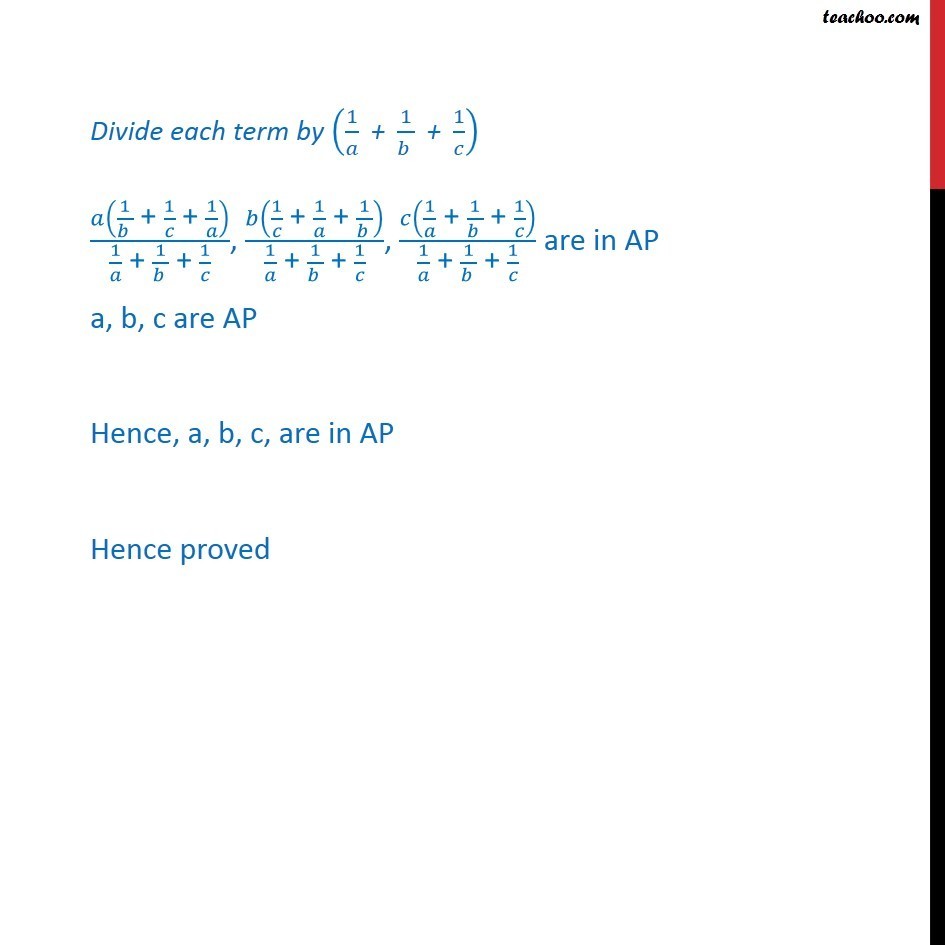

Arithmetic Progression (AP): Calculation based/Proofs
Arithmetic Progression (AP): Calculation based/Proofs
Last updated at Dec. 16, 2024 by Teachoo


Transcript
Misc 16 If a(1/( ) " + " 1/ ), b(1/ " + " 1/ ), c(1/ " + " 1/ ) are in AP., prove that a, b, c are in AP Given that a(1/( ) " + " 1/ ), b(1/ " + " 1/ ), c(1/ " + " 1/ ) are in AP. If a(1/( ) " + " 1/ ), b(1/ " + " 1/ ), c(1/ " + " 1/ ) are in AP Adding 1 to each term a(1/( ) " + " 1/ ) + 1, b(1/ " + " 1/ ) + 1, c(1/ " + " 1/ ) + 1 are in AP a(1/( ) " + " 1/ ) + / , b(1/ " + " 1/ ) + / , c(1/ " + " 1/ ) + / are in AP a (1/( ) " + " 1/ " + " 1/ ) , b(1/ " + " 1/ " + " 1/( )) , c(1/ " + " 1/( ) " + " 1/ ) are in AP Divide each term by (1/ " + " 1/( ) " + " 1/ ) (1/( ) " + " 1/ " + " 1/ )/(1/ " + " 1/( ) " + " 1/ ), (1/ " + " 1/ " + " 1/( ))/(1/ " + " 1/( ) " + " 1/ ), (1/ " + " 1/( ) " + " 1/ )/(1/ " + " 1/( ) " + " 1/ ) are in AP a, b, c are AP Hence, a, b, c, are in AP Hence proved